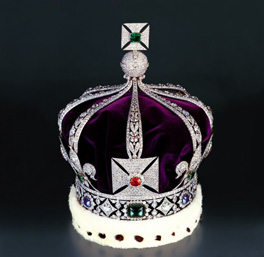This past Monday, December 19th, I celebrated the first anniversary of my ordination to the priesthood. In honor of the occasion, I thought I’d share what I have found the most difficult part of being a priest, the thing I felt like no one warned me about or trained me for. And it is: when your baptismal vows and your ordination vows conflict.
It may sound silly to say it, but in order to be a priest, you first need to be a Christian. In technical terms, that means you have to be baptized and confirmed, a practicing member of a church congregation and believe the Bible to be the inspired Word of God. You must have made the personal decision to follow Jesus. Only then does it make sense that you would be entrusted to help others make that same decision and follow it up.
But I did not anticipate how difficult it would be to balance my personal discipleship with the necessary public representative of the faith that you are as a priest. I recognize that many other people with professions that have a public facing element often have to disguise their own personal beliefs in the name of something larger than themselves, but this somehow feels different because of the more personal nature of the life of faith. One’s Christian convictions, felt strongly enough to be followed all the way up to the altar, are what mold and shape who you are as a person. It’s not so simple to just say, “I will put aside my own feelings on the matter,” because those feelings are deeply held beliefs about what is good and true and just and right.
For years, the motivating factor in my life was trying to follow Jesus. In what I did, how I acted, in my time devoted to worship and prayer that was the guiding influence. I didn’t have the words for it at the time, but I now understand this to be living into my baptismal identity. I was a Christian and I wanted my life to display that fact.
It’s common thinking that someone becomes a priest because they are the ones who take their faith the most seriously, who want to follow Jesus most closely. They are the ones who are giving up a secular career to serve his Church. But after a year of being a priest, I can’t shake the question: would Jesus have been a priest?
The short answer I’ve come up with is, “No.” The long answer is also, “No,” but with some caveats because this question is loaded with all sorts of disqualifying assumptions. For starters, Christianity wasn’t even a thing on Jesus’ radar during his life, it only came about in response to his Resurrection. Not to mention that it would be super awkward if Jesus were a priest because he would be doing things like celebrating the Eucharist in the first person and his very presence would seem to eliminate the need for a Eucharist to begin with. Why remember him when he’s there. The whole question is historically inaccurate.
It’s also scripturally inaccurate. Jesus was not, nor were his earliest followers, members of the clerical class. In fact Jesus spent a lot of his time criticizing those in positions of religious authority for their narrow-minded, sclerotic reading of the tradition (something religious leaders of today should always keep in mind). However, and this is an important counterbalance, Jesus was not anti-religion. He was more of a reformer than a revolutionary. He still went to the Temple, still knew the scriptures and allowed them to guide his life, still observed the major festivals and was certainly a man of prayer.
This may all seem very straightforward: Jesus would not have been a priest. But it presents some challenges to the faithful Christian who also feels called to the priesthood. For me, my faith in Jesus led me to be a priest. And now I find that it’s not so simple to sort out my personal faith convictions and my role as a representative of a larger tradition who has taken a vow that says, in part, “In all that you do, you are to nourish Christ’s people from the riches of his grace, and strengthen them to glorify God in his life and in the life to come.”
Let me offer a purely hypothetical example to try and illustrate this dilemma. Imagine you are a priest of a congregation in North Dakota. North Dakota has been the beneficiary of an economic boon lately thanks to technological advancements in the energy industry. Oil, Coal and shale gas (available through the controversial process of fracking) are all in ample supply now. And towns once thought to be dead and gone are being resurrected; the population is increasing and the money generated by the industry has buoyed many of the communities there. Because of these demographic shifts, your church is growing and showing signs of life. A new core of parish leaders employed by the oil industry, has come into town with their families. They are devoting time and money to the congregation. Your capital campaign is going well, the church building is back to being in good shape, there’s enough money to make the liturgy beautiful and glorious. They are trying to be faithful (like we all are) and you find them to be genuinely good people and enjoy their presence. You helped one young man bury his mother. You helped another young mother through the pain of a miscarriage. And their children serve as acolytes on Sundays and are maturing in the faith with great joy.
Then the situation in Standing Rock develops. And your Christian convictions tell you that the Native tribes whose well-being and water supply is threatened by the big oil corporation many of your parishioners work for, are deserving of the respect and kindness always on display in the Gospel to those marginalized by society and under threat of those in power. This is a matter of justice on many levels—environmental pollution, personal lives being threatened, historic wrongs rearing up again, etc.
But given the congregation you have vowed to love and nourish, what does that do to your personal convictions? If you rush to the front lines of the protest, what message does that send to those people who look to you for spiritual help on a regular basis? What happens to your church or community if your personal convictions drive away a substantial portion of your congregation? Is your desire that all the people who work for the oil company quit their job on moral grounds? What happens to their families then? And what does that mean for the church building, for the worship of God in this place? Have you personally damaged the institution of the Church which has more good left to do, albeit on a longer time scale than you might wish for? If you act this way, are you left with a congregation of like-minded people, all politically and culturally the same? Is that what the Kingdom of Heaven is supposed to look like? But, what happens if you sit idly by while water is poisoned, land is desecrated, a people long mistreated by your country are mistreated again, and the environment continues to be destroyed? Can you call yourself a Christian at all then? In sum, what happens when your commitment to seek and serve Christ in all persons means not being able to care for the people you are called to serve? And how can you be a reconciler if you are so clearly aligned with one side of the debate? All these are questions such a scenario raises for me. I’m very clear how I feel about the matter, but as you can see, it’s not so simple as that.
This is just one example. And again, a hypothetical one. But this year, and especially the vituperative Presidential campaign, has provided numerous occasions for this difficulty to emerge. This is more than just trying to balance how to talk about politics from the pulpit. This is about how you balance your own call as a disciple of Jesus Christ with the call to be a priest in Christ’s Church.
For some people the answer is clear. For some one’s personal call to act boldly in the name of justice trumps all else. For others the priest is meant to be only a symbol that points others to Christ and does not do anything to stand in the way. As with most things, I think the answer lies somewhere in the middle. But I haven’t found it yet. What I have found is that in an age of division and discord, the church is one of the few places left where people of different minds can come together around a higher set of common values and purpose. If we believe, as I do, that the only way forward for our divided country is together, then we sacrifice that position at our peril. But I have also found that there are a lot of Christians out there whose lives are drifting further afield from the Gospel they claim to believe in and there is a need to call people back to it as a shared point of identity and mission. And that may require some difficult conversations and choices on all our behalf. Repentance is never easy.
My wife and I have spent the last few weeks watching, “The Crown,” on Netflix. It’s a great series, especially for all you Anglophiles out there. It’s full of interesting historical details and impressive acting performances, but the central question of the first season is precisely this one of private vs. public persona. As Elizabeth goes from twenty-something mother of two, to Queen, her biggest transformation, and the source of most of the drama of the show, is in how this new role forces her to choose between her identity as wife, mother, daughter, sister, etc. and “The Crown,” defender of the faith, etc. In the last episode, stuck, as she often is, between these two roles, Elizabeth receives some advice from her estranged uncle, Edward VIII (who infamously abdicated the throne in 1936). He tells her, “We are two sides within us human and Crown engaged in a fearful civil war which never ends, and which blights our every human transaction…I understand the agony you feel, and I am here to tell you, it will never leave you.”
This is melodramatic, and ominous on purpose. But it also strikes me as not untrue for priests. There will always be the “civil war” between our personal faith in Jesus, our desire to follow him fully, authentically and our desire to fulfill the role of Priest entrusted to us on behalf of something much larger than ourselves. We wear a collar instead of a crown; the responsibilities and powers are very different, but not dissimilar. No one really warned me about this. And I am sensing now, that seeking a balance between those identities may just may be my life’s work.


